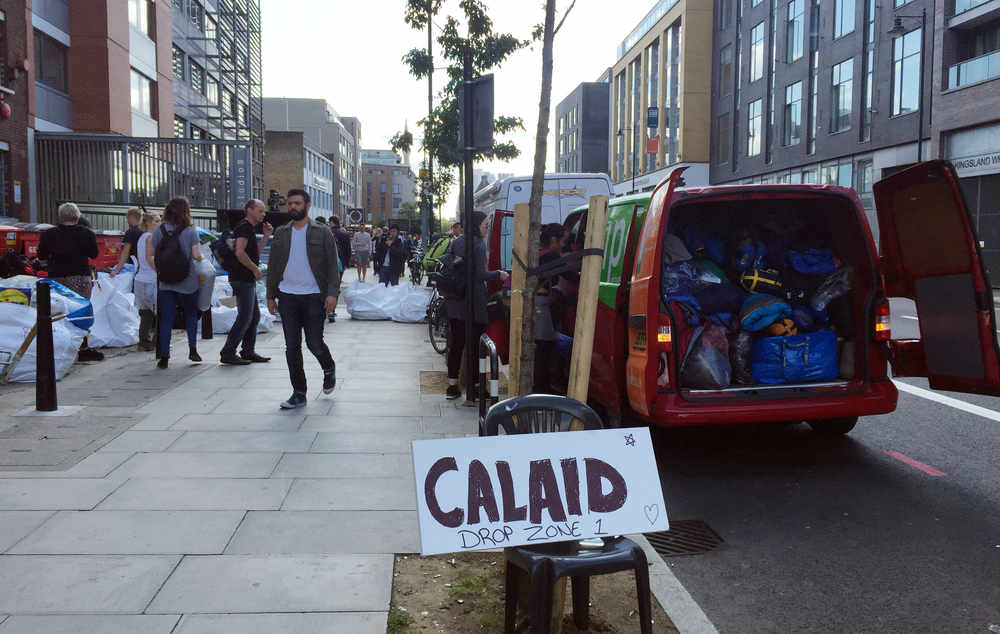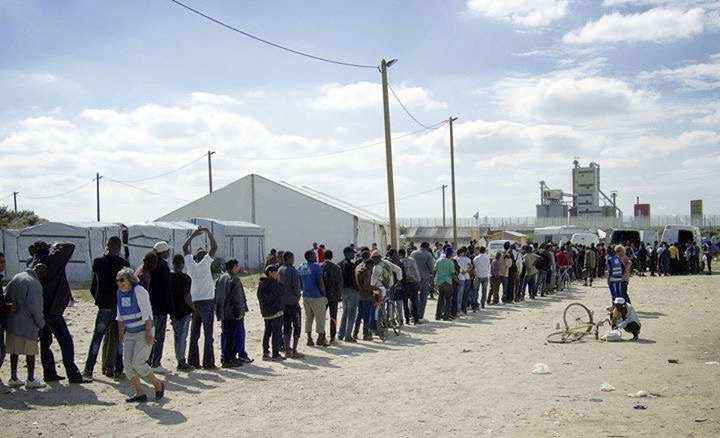- Tristram Colledge looks at how Jersey might help to alleviate the EU refugee crisis
- Does Jersey have a responsibility to help the migrants in Calais? Take part in our poll below
WITH one heartbreaking image of a three-year-old Syrian boy lying dead in the surf on a Turkish beach, the full scale of the refugee crisis hit home across the world.
Splashed across newspaper front pages, the picture of Aylan Kurdi’s lifeless body – the result of a failed attempt to reach the Greek Island of Kos – sent shock waves through Europe and further afield, stirring public outrage and posing serious questions for the governments of more privileged countries.
More than anything, it visually encapsulated the extraordinary risks refugees are taking to reach the west.
Closer to Jersey’s doorstep, the refugee situation is just as desperate.
Thousands of migrants from across Asia and Africa, many of whom are escaping war-torn countries, have travelled hundreds of miles to reach Calais in a desperate attempt to cross the Channel to get into the UK.
Many of the migrants are making daily attempts to reach Britain, with some scaling security fences in an attempt to board trains and travel through the Channel Tunnel, and others attempting to hide in lorries.
With tensions growing in Europe over how to handle the situation, France and Germany recently agreed that the EU should now impose binding quotas on the numbers that member states should take in, having failed to reach such a deal in June.
On Friday Prime Minister David Cameron said that the UK was to provide resettlement to thousands more Syrian refugees in response to the worsening humanitarian crisis.
He was due to give details of the government’s plan in a Commons statement today.
But what is Jersey’s position? Should the Island be following suit?
Is any government aid currently going to help refugees in Calais or Syria? And what exactly is our policy on asylum seekers?
Unlike the UK, Jersey does not have a written procedure to accept asylum seekers.
The States have an agreement with the British Home Office that they will obtain assistance and advice with any asylum applications they receive.
In a statement to the JEP, Chief Minister Ian Gorst said: ‘The plight of thousands of people fleeing desperate situations is distressing and we all want to see a long-term solution to this crisis. Jersey has a long history of responding generously to humanitarian need and I am sure this situation will be no different.
‘Jersey does not have its own procedures for asylum seekers, but is a signatory to the relevant conventions and protocols.’

Senator Gorst is due to answer a question from Deputy Sam Mézec in the States tomorrow about whether he has had any conversations with Guernsey and the UK about the impact the refugee crisis in Calais could have on Jersey.
Deputy Mézec said it was important for the Island’s politicians to debate the matter and that discussions were needed between the UK, France and the other Channel Islands so that a ‘joined-up approach’ could be made.
The Deputy said: ‘I want to know what conversations have been had with the UK and whether it is right that Jersey can’t take in asylum seekers voluntarily, because given the proximity to Calais, it’s not impossible that they could make their way here.
‘This is one of the greatest humanitarian crises that we have seen since the Second World War and we have a moral responsibility to see what we can do in joint action with the UK and France. ‘When the Nazis arrived in Jersey, thousands left the Island as refugees and were taken in elsewhere.
‘I am not going to say Jersey should take X amount of refugees, but we need to be part of a wider conversation with our counterparts in nearby areas.
‘We need to play whatever role we are desired to play by our international neighbours.
‘We need to think about what we can do to help refugees, just as we have benefited in the past.
‘I think some of the language that has been used by David Cameron and Theresa May has been morally reprehensible.
‘It has been unhelpful and has been enacting the public to form a negative view. The UK has a long history of taking people in in the hour of need, but the government seems to have forgotten that.’
Deputy Mézec added that he wanted the Chief Minister to meet the Jersey Calais Refugee Aid Group, led by Island teacher Bram Wanrooij, following the Guernsey Chief Minister’s decision to meet campaigners who are calling for the island to help with the migrant crisis.
‘I am calling on the Chief Minister to have a meeting with Bram to discuss what Jersey can do to work with them,’ Deputy Mézec said.
Deputy Carolyn Labey, chairwoman of the Jersey Overseas Aid Commission, said that they had met to discuss the refugee situation in Calais, but that it needed to have the backing of the French government before they could provide aid.
‘We are monitoring the situation, but until the countries themselves come forward and ask for help, we can’t do anything,’ she said.
‘We have to have the support of the French government in this case. It’s our current policy that we do not respond to crises, we respond to declarations of emergency.’
Deputy Labey said that the commission would primarily be looking to help large non-government organisations working in Syria, but that they could give money to local charities that wanted to travel to Calais to provide humanitarian relief.
‘Syria is really the place that we should be targeting,’ she said.
‘The aid agencies should be looking to Syria to see how we can set up sustainable projects.
‘We need to establish strategies on how we can help most effectively. Jersey has a history of supporting emergencies and we need to have detailed discussions before we go any further.
‘We need to know who we are giving the money to, and until someone registers a local charity and applies for aid specifically for a certain cause, we can’t go any further.’







